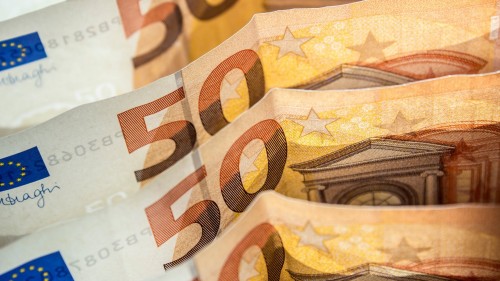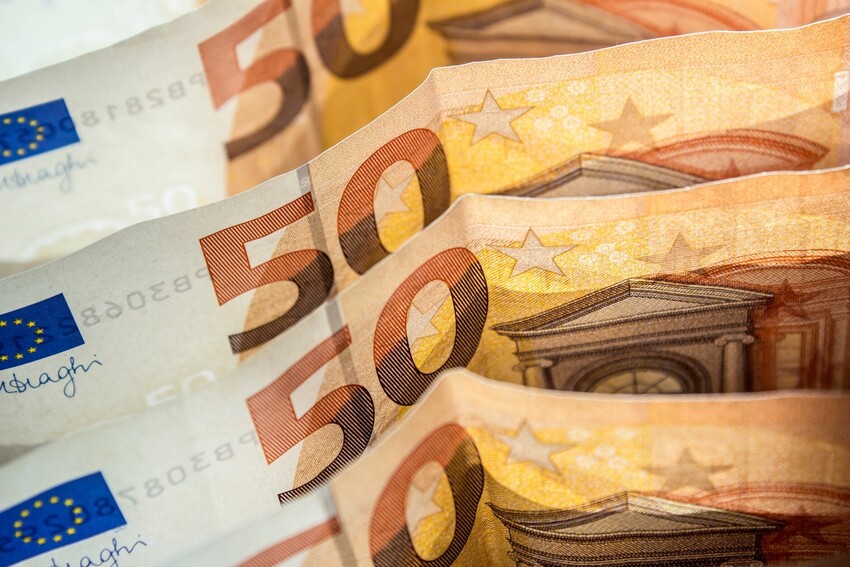VAT and Brexit - how do the changes affect services?

posted 5th January 2021
As well as gifting us the end of 2020, 1 January 2021 brought with it the first day of Brexit. Whatever your feelings about Brexit, the trade deal now gives us more certainty as to how things may look going forward which has to be good news for businesses. I've been reluctant to confirm anything completely until whatever trade deal or "no deal" was finalised, but now I think we are relatively safe in setting out how VAT may look going forward. This article concerns services only. If you trade in goods with the EU, please refer to this article here which sets out some further comments on the VAT considerations and processes for cross border trade.
.
How has VAT on services changed post-Brexit?
The short answer is, fortunately, that there is not a huge deal of change for many service providers and very little, if any, extra paperwork. I think we have all been frightened into thinking that we all have to fill in loads more forms and jump through hoops to trade with the EU going forward. Whereas this may or may not be true for other taxes and legalities, and will somewhat be the case for goods traders, this does not apply to a large extent to VAT changes for service providers.
Saying this though, there are a number of important changes for VAT, so please do read on to see if and how this may affect your business.
.
Commissions and fees paid by UK businesses for services taking place in the EU
Pre-Brexit, where you receive a commission or fee from a UK business, it would normally be taxable at the standard rate unless it related to a zero rated provision of transport, or a non EU service (for example, a UK corporate company pays you a commission for your arrangement of US hotels for its staff). Where the commission/fee relates to arranging zero rated passenger transport or non EU services, the commission/fee is zero rated.
Post-Brexit, the Taxation (Cross Border Trade) Act 2018 confirms that commissions/fees for arranging EU services will also become zero rated. This means that, if you arrange EU travel (or indeed other services with an EU place of supply) for a UK business, your commission/fee will now be zero rated. This is likely to particularly affect TMCs and other businesses which arrange corporate travel.
If a fee or commission relates partly to non UK travel and partly to UK travel, it may be necessary to split the fee between standard rated and zero rated. This has always been the case for fees relating to both EU and non EU travel. However, those who arrange EU travel only will have not had to consider this previously. If this affects you, I would recommend that this be reviewed to ensure that your systems can account for the VAT change correctly.
Commissions/fees paid to you by non UK businesses remain outside the scope of UK VAT.
.
Certain services supplied to EU individuals
The "general rule" for services supplied B2C (that is, to an individual) is that they are subject to VAT in the place where the supplier is located. This means that, for most services supplied B2C by a UK business, the UK VAT rules apply. Typically, the standard rate, currently 20%, then applies.
There is a list of certain services which, where supplied B2C to an individual whom is normally resident outside the EU, the services are treated as taking place where the customer belongs. As such, they are outside the scope of UK VAT and no UK VAT applies. Post-Brexit, this now extends to services provided to any individual who isn't normally resident in the UK. What are these services? In the VAT world, we sometimes refer to these as the "old Schedule 5" services (fun, hey) and in summary these are:
- Transfers and assignments of copyright, patents, licenses, trademarks and similar rights;
- Advertising;
- Services of consultants, engineers, lawyers, accountants, and other similar services (inc. data processing and provision of information) but not where these specifically relate to an area of land/property;
- Banking, financial and insurance;
- Staff;
- Agreeing to refrain from pursuing a business activity;
- Certain services relating to access and transmission through power systems;
- Letting on hire of goods (other than means of transport); and
- emissions allowances.
This covers a wide range of services and businesses and so, if you do provide these services, or services which could potentially fall within these categories, B2C, I would advise you to review your VAT treatment as this could bring a big saving. It may not always be entirely obvious as to whether services fall within this list - for example, if you wade deep into the guidance, "consultancy" includes certain education services where the supplier and customer are located in different countries. As such, if there is any doubt, it is worth considering!
.

The Tour Operators Margin Scheme
There has been a significant change to the Tour Operators margin Scheme (TOMS) rules. This has been covered here in an article all of its own (as usual, TOMS is way too complex to cover in a couple of paragraphs!). In summary, whereas the margin made on travel services falling within TOMS was previously standard rated when the travel took place in the EU, it is now standard rated only where the travel takes place in the UK.
This is great news for travel operators in what has been a very difficult 12 months. I very much hope you will be able to take advantage of this very shortly into 2021.
This change will mean that there are some transitional issues and options and so I would advise any business using TOMS to review its situation to ensure that you are fully prepped, and not overpaying VAT going forward.

Mini One Stop Shop (MOSS)
Certain digital services supplied B2C are subject to VAT where the customer is located. This includes services such as digital downloads (music, films, online magazines, books, web hosting and remote maintenance) radio and TV, and telephony.
This means that a single provider of, say, music downloads, may have customers in all 27 EU member states and would be required to register and account for VAT in all these member states. The MOSS rules combat this, meaning that essentially one VAT declaration is made in the supplier's own member state, and the VAT is then calculated and "sent" to the other member states as appropriate.
Post-Brexit, UK suppliers now do not have an "own member state". As such, they will need to register in another EU country for the non-Union version of the MOSS rules. They will also no longer benefit from the €10k threshold before having to apply these rules. The alternative would be to register in each relevant member state. To be honest, I can't see why anyone would do this over the non-Union scheme apart from perhaps if you have business or related group companies in all relevant member states.
input vat recovery for supplies of certain financial and insurance services to eu customers
Where businesses make supplies which are exempt from VAT, they usually suffer restrictions to input VAT recovery. This usually also applies if the "place of supply" is outside the UK, but the service would be exempt if it was a UK supply. There is however a certain proportion of exempt services which, where provided to customers outside the UK, still carry the right to UK input VAT recovery. These are referred to as "Specified Supplies" under Value Added Tax (Input Tax) (Specified Supplies) Order 1999. Before Brexit, this input VAT recovery only applies where the customer was located outside the EU. However, for supplies taking place from 1 January onwards, this applies to supplies to customers located in the EU too. This means that the input VAT restriction only applies to sales of these services to UK customers.
"Specified supplies" include:
- financial services supplied to persons belonging outside the UK or directly related to an export of goods to a place outside the UK;
- insurance services supplied to persons belonging outside the UK or directly related to an export of goods to a place outside the UK;
- the making of arrangements for these specified supplies.
VAT refunds from EU member states
Prior to Brexit, businesses which incur input VAT on purchases in other EU member states can recover this VAT via the EU Refund System (in the "VAT world" we call these "Eighth Directive reclaims" because that's where they used to be contained....very original). This is subject to the normal input VAT recovery rules in that member state and assuming that the business is not entitled to be registered.
This was a reasonably straightforward procedure and was accessed through the HMRC online account you would usually use for your VAT and tax affairs.
Now that we are not within the EU, this input VAT recovery is still possible, but now through the more complex "Thirteenth Directive" procedure (another very original "slang" term). Instead of using the online system, businesses will need to apply directly to each member state with respect to their own rules and procedures. The rules vary between member states (in the UK, we make non-EU businesses apply in writing with all original invoices) and the time limits will usually be shorter. It is most likely still possible to appoint an agent to deal with these types of claims for you (some will do so in return for a cut of your refund). However, it may now only be beneficial where the amounts are sizable.
For claims relating to the period prior to 1 January 2021, claims can still be made using the online EU refund scheme, but must be made by 31 March 2021.

Purchases of services from EU suppliers
A quick note that there is no general change to the VAT treatment of services purchased from EU suppliers. UK businesses should still apply the reverse charge rules to services which were subject to the reverse charge prior to Brexit, and should not be charged VAT locally by the EU supplier.
Brexit consultations
I hope that the comments above have been useful in giving you some clarity on how VAT may affect sales and purchases of services now that we have left the EU, and that there is some good news for your business in the text above! If you would like some advice for your business specifically, please do contact me on 07971 642789 or laura@vatnav.com.
I will be offering Brexit consultations at a significant reduction to my hourly rate for the rest of January, so please do let me know if you would like to schedule a consultation.


